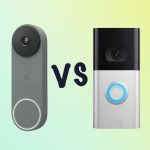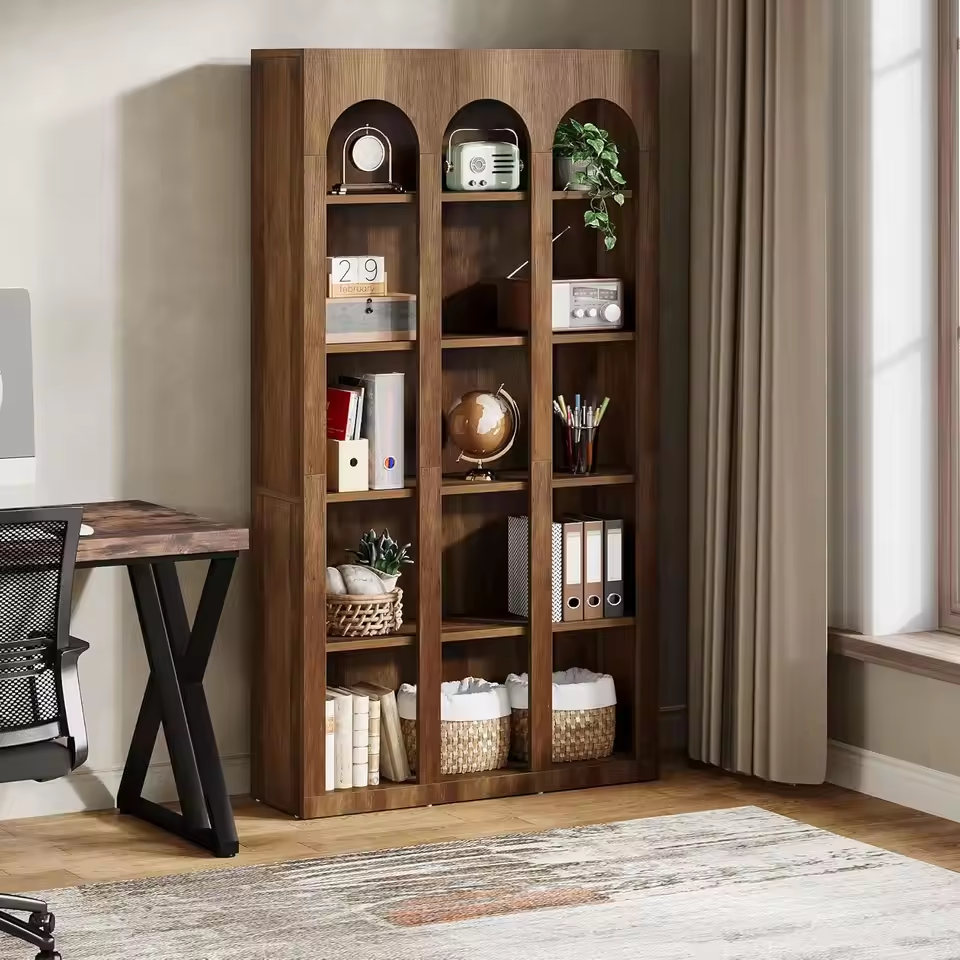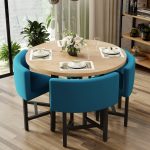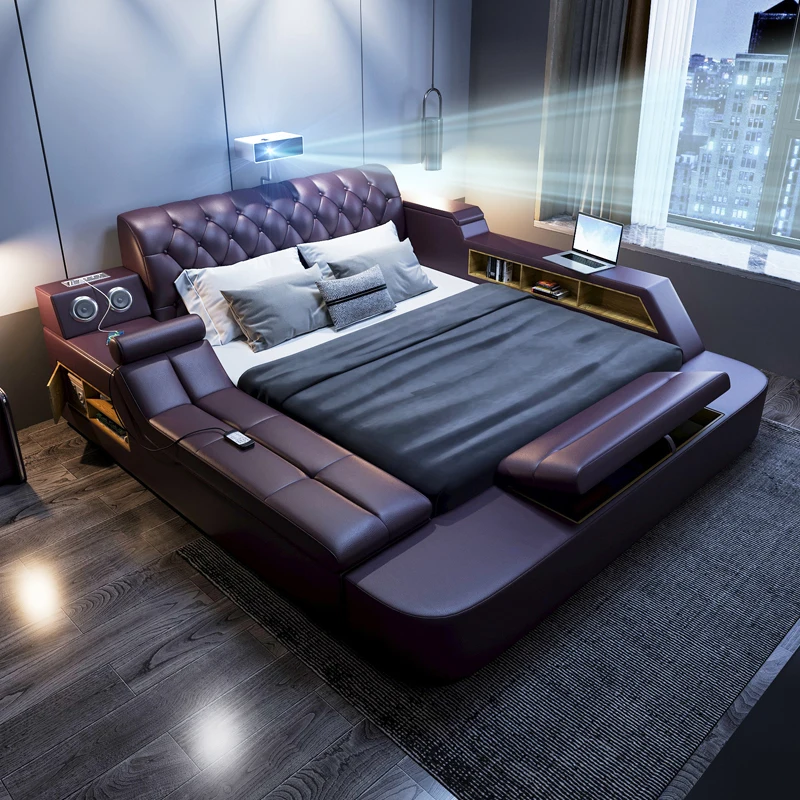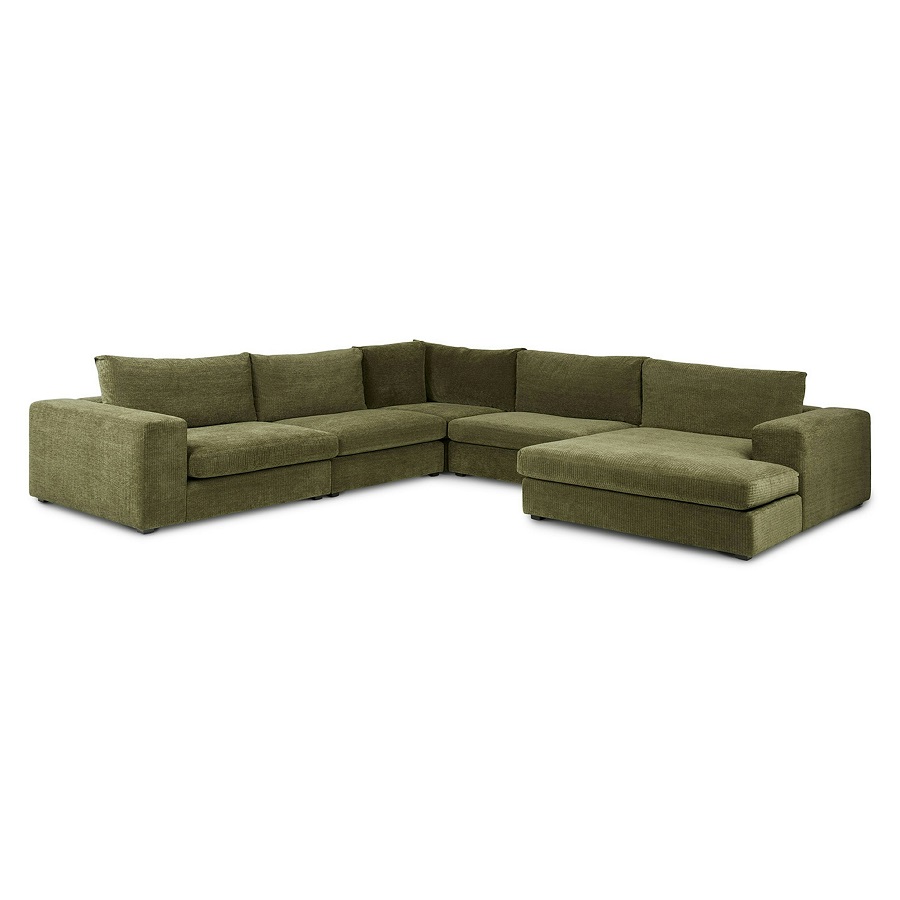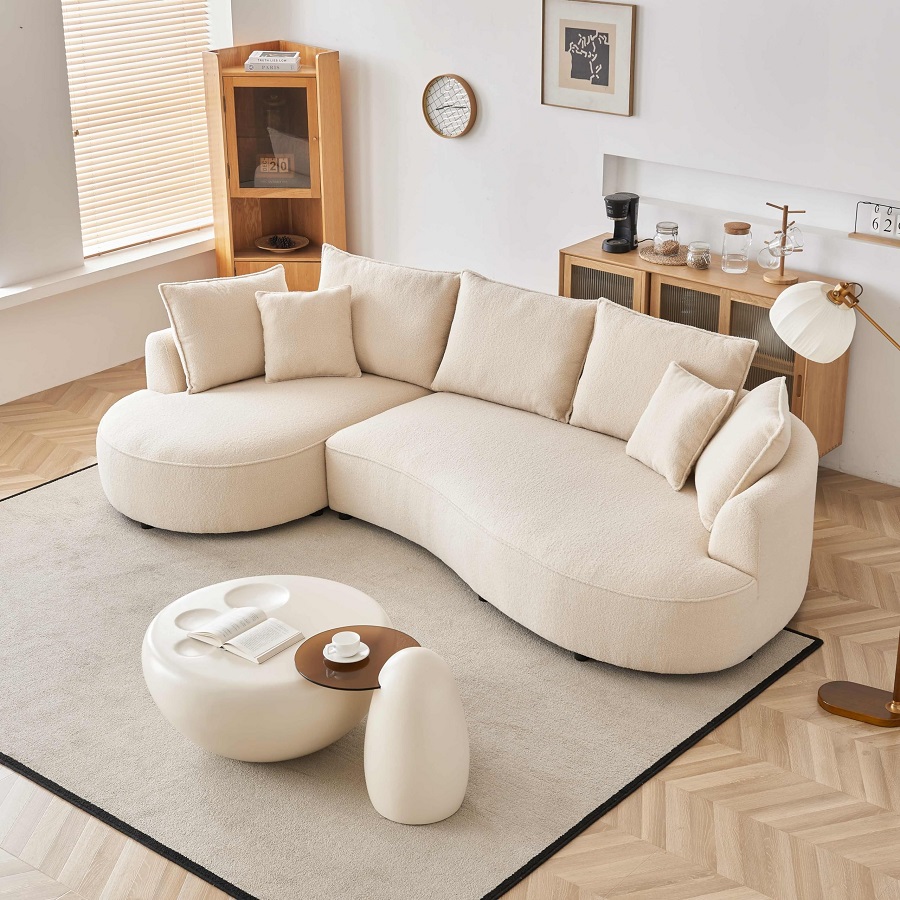In an age where technology integrates seamlessly into our daily lives, from smart homes to wearable devices, it’s only natural that our sleeping experience is enhanced by innovation. Smart beds, with their advanced technology, offer transformative potential for one of our most vital activities: sleep. These modern marvels allow us to customize our comfort levels while offering a plethora of features that contribute to better sleep quality, health monitoring, and overall well-being. This article will delve into the myriad benefits that smart beds bring to the table, illustrating how technology meets comfort in today’s bedroom.
Understanding Smart Bed Technology
Before we delve into the benefits of smart beds, it’s crucial to understand what constitutes this technology. Smart beds are beds equipped with various electronic devices and mechanisms that allow users to customize their sleeping environment. Most commonly, they come with adjustable bases that let occupants change the position of their head and feet. This is complemented by integrated sensors that monitor vital sleep statistics, such as heart rate, body temperature, and movement throughout the night. Many smart beds are also compatible with sleep-tracking apps and home automation systems, creating an interconnected ecosystem that enhances bedtime routines.
These advancements go beyond mere comfort; they aim to address specific needs, whether it be alleviating back pain, accommodating snoring partners, or adjusting the temperature settings to facilitate restful, uninterrupted sleep. The technology may even integrate AI capabilities to learn a user’s sleep patterns over time, providing personalized recommendations for optimum rest. Such features position smart beds at the intersection of innovation and comfort, making them a compelling investment for anyone looking to improve their sleep quality.
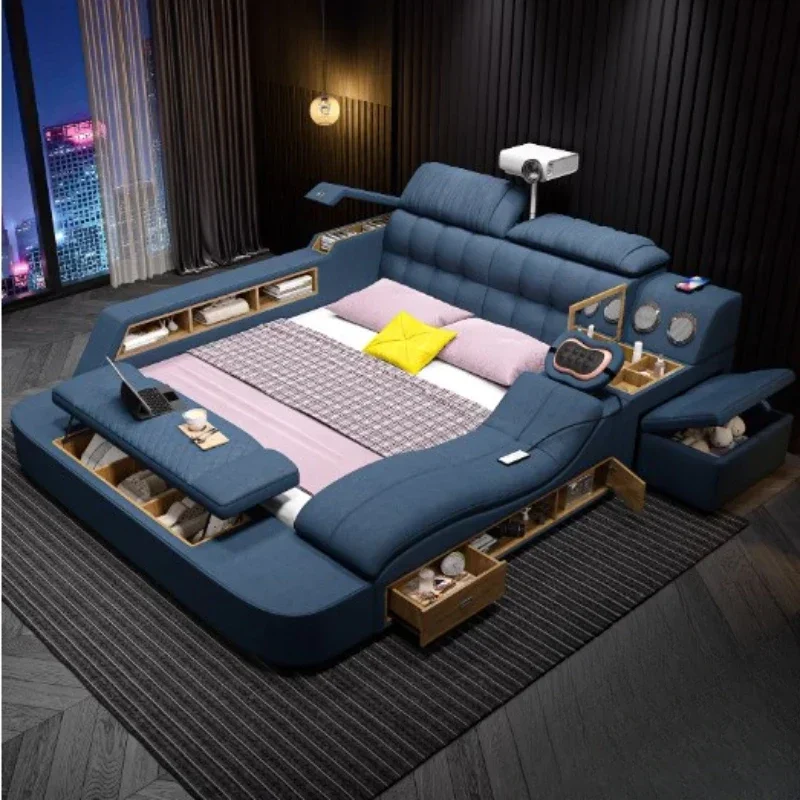
Enhanced Sleep Quality Through Personalized Support
One of the most significant advantages of a smart bed is its capacity to offer personalized support that can drastically improve sleep quality. Unlike traditional mattresses, which cater to a one-size-fits-all approach, smart beds allow users to adjust their sleep surface according to their individual preferences. For instance, factors like firmness level, temperature, and even the inclination of the mattress can be modified with just a touch of a button or a simple voice command.
Many smart beds also boast zoned support systems designed to adapt to the body’s natural curves, providing tailored alignment for specific areas such as the lower back and neck. This feature can be especially beneficial for individuals suffering from chronic pain or discomfort, as tailored support often alleviates pressure points. Coupled with advanced temperature control features, which allow users to sync their bed with the ideal ambient conditions for sleep, these customizations can lead to deeper and more restorative slumber.
Additionally, smart beds often feature sleep tracking technologies that analyze sleep cycles and disturbances. By gathering data about your sleep architecture—light, deep, and REM stages—the bed can provide insights that help users make informed decisions about not only their mattress settings but also their overall sleep hygiene. Ultimately, a personalized sleeping experience with smart beds facilitates better rest, leading to improved physical and mental health.
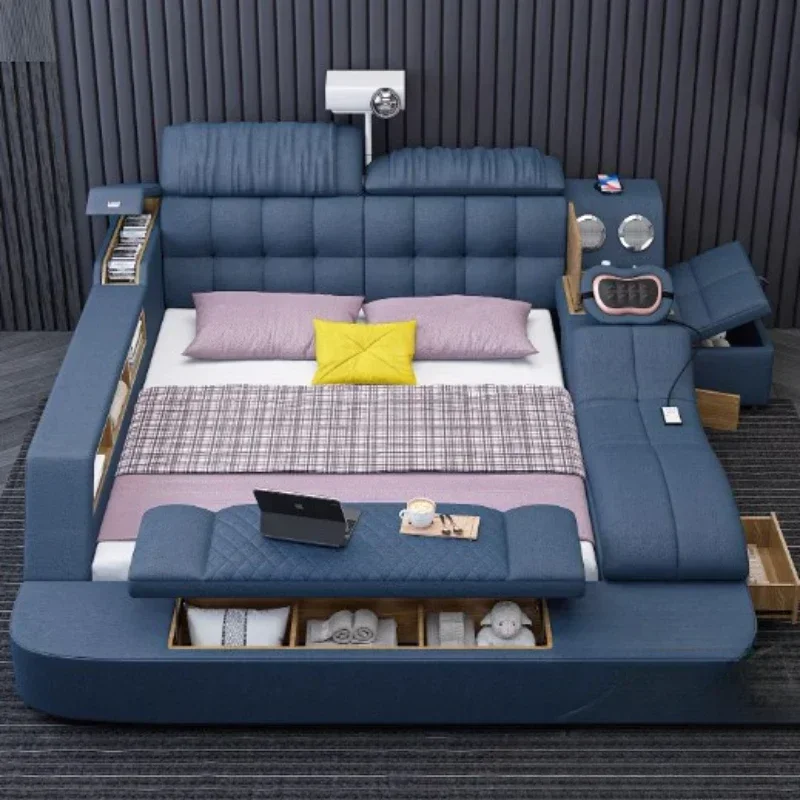
Alleviating Common Sleep Disorders
Sleep disorders affect a significant portion of the population, with millions struggling to get the quality rest they need. Smart beds can play an instrumental role in alleviating common sleep issues like insomnia, sleep apnea, and even restless leg syndrome. For instance, people dealing with sleep apnea often benefit from the incline feature available in many smart beds. Elevating the upper body can help open up the airways, reducing the frequency and severity of nighttime breathing disruptions.
Moreover, the smart sensors in these beds can monitor your breathing patterns and snoring, alerting you to potential issues. Some models even come equipped with solutions that promote a quieter environment during sleep, such as white noise machines or integrated wake-up systems that gently rouse users before they enter a deep sleep cycle, allowing for smoother transitions to wakefulness.
Additionally, many smart beds offer therapeutic functions that can be beneficial for individuals with restless leg syndrome or similar conditions. Features such as vibrating massage functions can ease muscle tension and encourage relaxation, setting the stage for better sleep. By combining these sophisticated features, smart beds emerge as potent allies in combating sleep disorders and enhancing nighttime comfort.
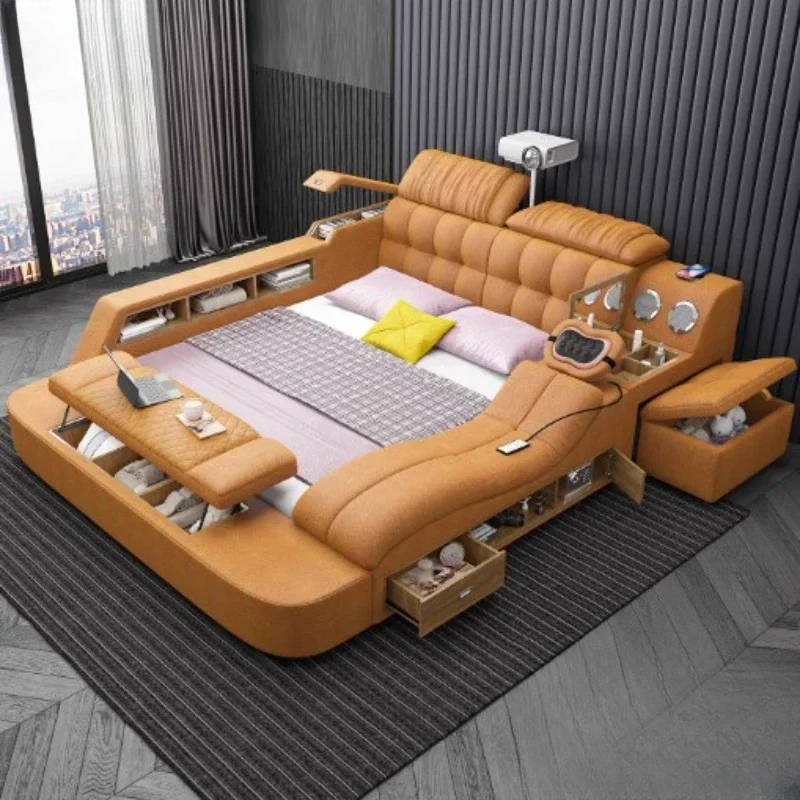
Health Monitoring and Sleep Analytics
One of the most intriguing aspects of smart bed technology is its integration of health monitoring capabilities, turning bed time into a genuine wellness experience. Smart beds can collect a wealth of data on metrics such as heart rate, respiratory rate, and even body temperature. This information can then be analyzed to provide users with actionable insights into their health and sleeping patterns.
For example, many smart beds provide comprehensive analytics that can illuminate correlations between lifestyle choices and sleep quality. Users can track how their diet, exercise, and stress levels impact their sleep, potentially identifying patterns that lead to better choices. This data-driven approach to wellness can empower users to improve not only their sleeping habits but also their overall health by encouraging a lifestyle conducive to restorative rest.
Furthermore, healthcare professionals are starting to embrace the potential of data from smart beds as a valuable tool in understanding a patient’s sleep health and overall wellness. In some scenarios, doctors may recommend specific sleep interventions informed by data collected from the smart bed, offering tailored solutions for issues ranging from chronic fatigue to sleep-related illnesses. This integration of health monitoring into the sleeping experience showcases how a seemingly simple piece of furniture can serve as a valuable ally in the quest for improved health.
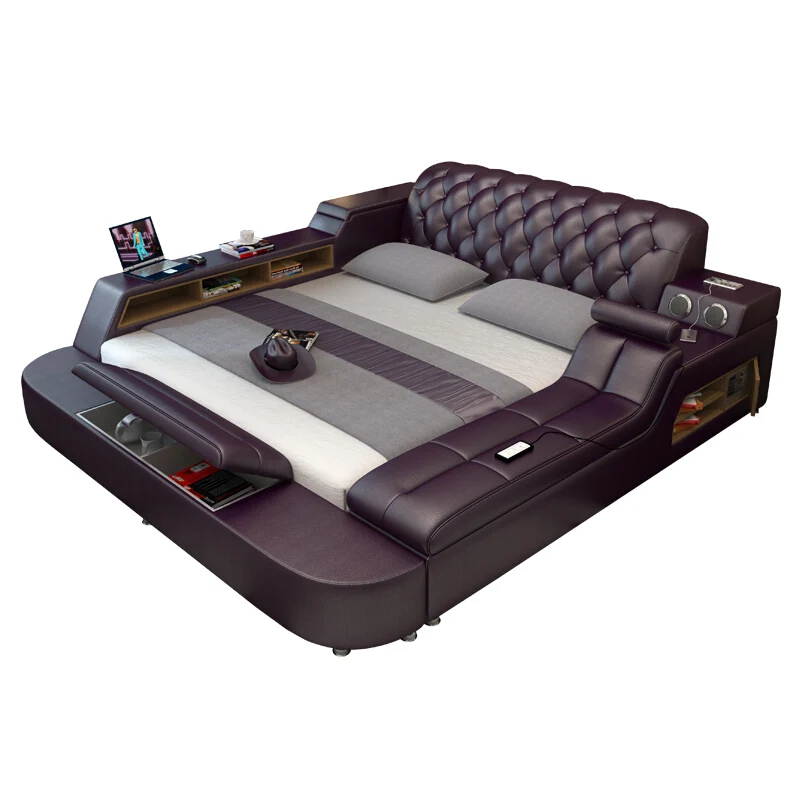
Enhanced Communication and Integration with Smart Home Systems
In today’s smart home environment, integration is key, and smart beds do not lag behind in this respect. Many models are designed to seamlessly sync with other smart devices, enabling a level of convenience that transitions the nighttime routine into a more streamlined and enjoyable experience. This synchronization can take many forms, from adjusting room temperatures based on personal preference to dimming the lights for a cozy atmosphere just before bedtime.
For instance, using voice-activated smart assistants like Amazon Alexa or Google Home, users can issue commands that adjust the bed’s position or temperature without having to leave the comfort of their sheets. Pairing the smart bed with smart lighting solutions not only enhances the ambiance of the room but also fosters quality sleep by promoting healthier daily rhythms. Automated routines can be established where lights gradually dim as sleep time approaches, prompting the body to unwind and prepare for rest.
Additionally, smart beds can integrate with alarm systems and health-monitoring devices, ensuring a wake-up process that aligns with your body’s natural rhythms. For example, a gentle alarm can synchroniz with your sleep cycle to gently wake you during a lighter sleep phase, significantly reducing grogginess. This comprehensive integration into the smart home ecosystem does not merely elevate comfort; it also fosters a holistic approach to wellness that promotes healthier sleep habits.
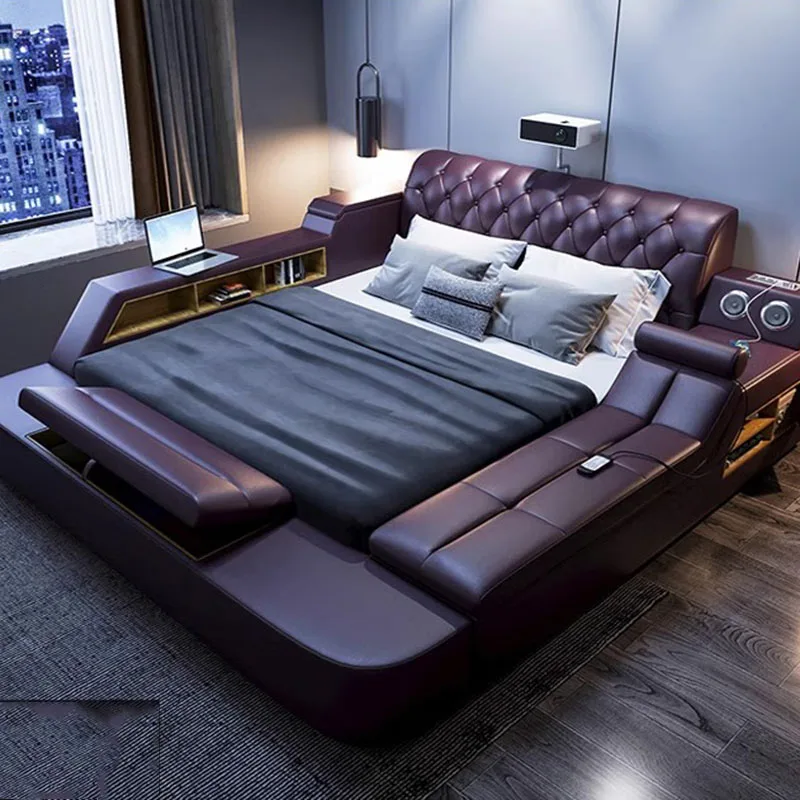
Sustainability and Energy Efficiency
As environmental concerns continue to rise, sustainability has become a focal point for many consumers, and smart beds are increasingly stepping up to meet these demands. A variety of smart bed manufacturers committe to sustainability by utilizing eco-friendly materials and processes in their manufacturing. Many incorporate natural and organic materials, such as Celliant and bamboo, that are not only kind to the planet but also enhance comfort and temperature regulation during sleep.
Moreover, energy-efficient smart beds often come equipped with algorithms designed to optimize power usage. For instance, features like automatic shutdown ensure that the bed enters a low-energy mode when not in use. Some models even allow users to track energy consumption, empowering them to make informed decisions about their usage habits, further contributing to a reduced carbon footprint.
By choosing a smart bed that emphasizes sustainability, consumers not only benefit from modern technologies but also contribute to broader environmental initiatives. This combination of comfort, health benefits, and eco-friendliness illustrates how technology can harmonize with social responsibility, delivering an enriching sleep experience while also considering our planet’s future.
Conclusion: The Future of Sleep
As we continue to embrace the possibilities offered by technology, the evolution of smart beds epitomizes a shift towards personalized comfort, enhanced health monitoring, and streamlined living. With their variety of features aimed at improving sleep quality, alleviating sleep disorders, and integrating seamlessly into our smart homes, these innovative beds are much more than a convenient upgrade; they represent an intelligent solution to one of the most crucial aspects of our lives—sleep.
The emphasis on health analytics and sustainability further underscores the ways in which smart technology can cultivate a more profound awareness of individual well-being while fostering an eco-conscious way of living. While the initial investment may appear sizable compared to traditional bedding options, the long-term benefits—both physical and emotional—are likely to yield significant returns.
In a world that values both comfort and technology, smart beds have emerged as emblematic of the future of sleep. As these systems continue to evolve, we can only anticipate even greater innovations that ensure a more restorative and enriching sleeping experience. As we look toward a future where well-being prioritizeand personaliz, investing in smart beds forms a pivotal step toward achieving the restful nights we all deserve.
